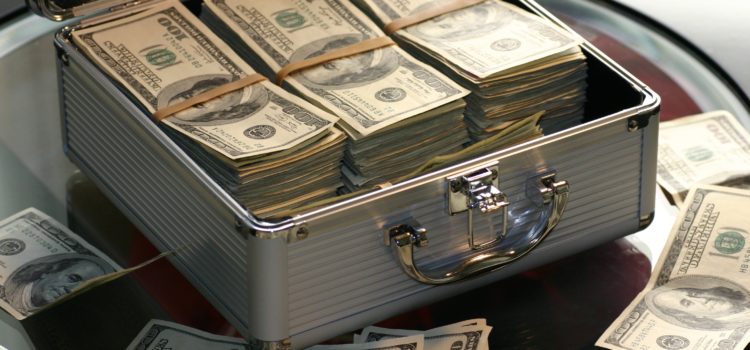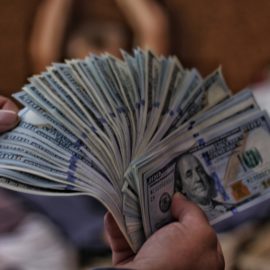

This article is an excerpt from the Shortform book guide to "Billion Dollar Whale" by Tom Wright and Bradley Hope. Shortform has the world's best summaries and analyses of books you should be reading.
Like this article? Sign up for a free trial here.
Who is Jho Low? What is his background? How did he get his start in business and financial crime?
Meet Jho Low, the Malaysian entrepreneur who allegedly stole billions of dollars from his government’s coffers. In Billion Dollar Whale, Tom Wright and Bradley Hope chronicle Low’s life and rise to infamy.
Read on to learn about who Jho Low is and how he rose to prominence in politics and finance.
Who Is Jho Low? How He Rose to Prominence
In Billion Dollar Whale, Pulitzer finalists Tom Wright and Bradley Hope chronicle the rise and fall of Jho Low, a Malaysian entrepreneur who allegedly stole billions of dollars from his government’s coffers. But, who is Jho Low exactly? How did he rise to infamy? We’ll answer these questions in this article, based on the descriptions in Wright and Hope’s Billion Dollar Whale.
To explain who Jho Low is, let’s take a look at his beginnings, which were far from humble. The authors explain that he was born and raised in Penang, Malaysia. Low’s father, Larry Low, had made millions through the sale of his shares in a garment company. However, attending the UK’s prestigious Harrow boarding school, and later on the University of Pennsylvania’s Wharton School in the U.S., the younger Low was surrounded by the children of some of the wealthiest, most influential families in the world. According to Wright and Hope, while Low’s family was wealthy, its riches and status paled in comparison to those of these young members of the global elite.
(Shortform note: While Wright and Hope note that Jho Low’s relative lack of wealth put him at a social disadvantage, even the wealthiest students might have struggled to stand out at Wharton. Wharton’s list of famous and successful alumni includes Elon Musk, Warren Buffet, and Donald Trump, to name a few. At such a prestigious institution, it would have been difficult for Low to make a name for himself, even with more money.)
At school abroad, Low learned to carefully manipulate his image to convince the rich and powerful that he belonged among them. As Wright and Hope describe, Low threw parties designed to elevate his status. For example, in boarding school, he invited several classmates to vacation in Malaysia. He hosted them in an extravagant, rented mansion, claiming it was his own. The ruse worked, convincing Low’s young classmates of his wealth. Throughout his time at Wharton, Low continued to earn a reputation for the lavish parties he hosted.
(Shortform note: Because of who Jho Low is, the son of a well-to-do family, he may have only been able to pull off his ruse thanks to his wealthy background to begin with. Some experts believe that because of the high correlation between wealth and physical well-being, strangers can tell if you’re wealthy just by looking at your face. This principle suggests that if someone from a low-income family attempted to seem more wealthy, others might be able to intuitively determine the truth.)
Low Began Building Influence in the Middle East and Malaysia
Now that we understand Jho Low’s beginnings and who he is in terms of his family origins, let’s explain how he began to build influence in the political and financial sectors. Once his reputation was established, Low began looking for ways to leverage his new connections. Wright and Hope note that Low began visiting the Middle East with his Wharton friends, hoping to be introduced to potential future business partners.
Wright and Hope describe how Low soon began to forge relationships with powerful political and financial figures overseas. Notably, Low met with Yousef al Otaiba, a political adviser who would later become an ambassador, and Khaldoon Khalifa al Mubarak, who ran Mubadala Development, a sovereign wealth fund in the United Arab Emirates (UAE). Shadowing al Mubarak, Low was able to observe the freedom with which sovereign wealth funds operate. Backed by the UAE’s government, al Mubarak and the other men at the head of Mubadala had billions at their disposal, with little oversight or regulation.
(Shortform note: A sovereign wealth fund is a state-controlled investment fund that a country uses to generate revenue that it can then repurpose as necessary. These government-owned funds serve a variety of purposes. Some sovereign wealth funds exist to help their governments pay off debts in hard times, others exist to bolster pension funds for retired citizens, and some exist simply to generate as much money for the government as possible.)
At home in Malaysia, Low used his father’s connections to get in touch with the family of Deputy Prime Minister Najib Razak. Najib, who would become prime minister in 2009, aspired to a more expensive lifestyle, much like Low. As Wright and Hope describe, Low tried to turn his connection with Najib’s family into a real estate deal. However, Low immediately ran into problems, promising profits to his new friends, while lacking the capital to fund the project. While the deal ultimately fell through, Low’s newfound friendship with Najib was an important one.
(Shortform note: Jho Low’s relationship with Najib was especially useful because Najib was the scion of one of the most politically powerful families in Malaysia—both Najib’s father and his uncle had served as prime ministers before him. While Najib entered office promising liberal reform, during his tenure he strengthened laws that allowed him to silence dissent—these measures would later help him conceal evidence of his involvement with Low.)

———End of Preview———
Like what you just read? Read the rest of the world's best book summary and analysis of Tom Wright and Bradley Hope's "Billion Dollar Whale" at Shortform.
Here's what you'll find in our full Billion Dollar Whale summary:
- A chronicle of the rise and fall of Malaysian entrepreneur, Jho Low
- The tactics Low used to succeed as a con man
- The political and financial context for Low's scheme






